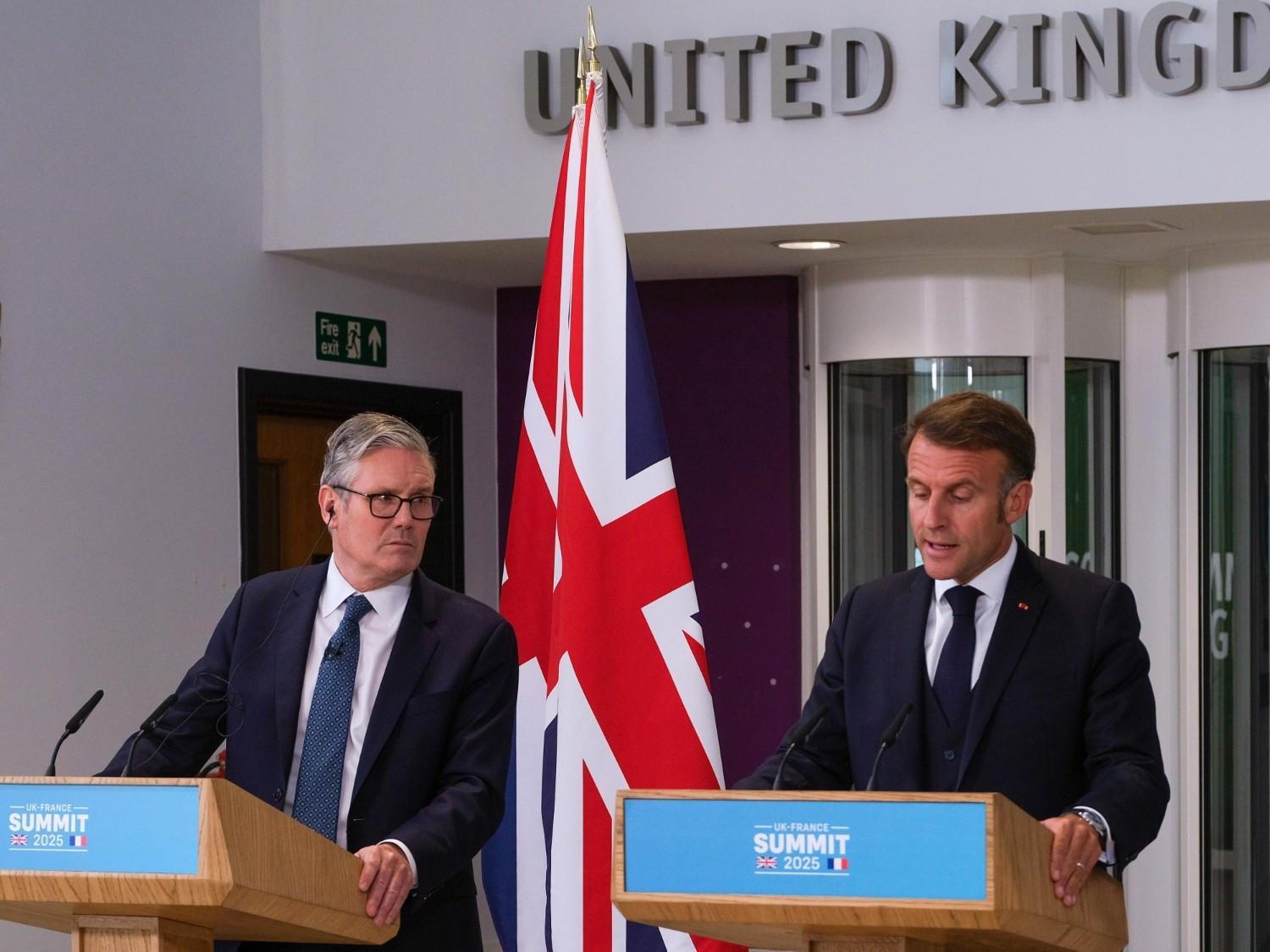
U.K. Prime Minister Keir Starmer and French President Emmanuel Macron sealed deals on defense cooperation, including a pledge to coordinate their nuclear deterrents for the first time.
The announcement came after Macron concluded a three-day state visit to Britain.
“Now as Europe’s only nuclear powers and as leaders in NATO, we play a vital role in preserving the peace and security on this continent,” Starmer said.
“From today, our adversaries will know that any extreme threat to this continent would prompt a response from our two nations,” Starmer added.
In targeting a "reboot" of defense ties with a focus on joint missile development and nuclear co-operation, Europe's two nuclear powers also hope to send a strong signal to Moscow.
According to the Stockholm-based SIPRI, France has 290 nuclear warheads, some carried aboard four submarines and some by Rafale fighter jets.
Britain for its part has 225 nuclear warheads. For now, the British nuclear deterrent is purely sea-based, carried by four submarines armed with ballistic missiles.
Unlike France's, Britain's nuclear forces are fully integrated under the NATO defense umbrella to cover the Western military alliance's 32 member states.
The July 10 declaration stated that the respective deterrents of London and Paris remain under national control "but can be coordinated."
Britain and France also agreed on July 10 to a pilot plan that will send some migrants who cross the English Channel on small boats back to France as the U.K. government struggles to tamp down criticism that it has lost control of the country’s borders.